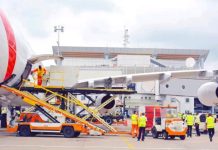The International Air Transport Association (IATA) has released its Value of Air Transport study for Kenya, highlighting the significant contribution of aviation and aviation-related tourism to the country’s economy and job market.
According to 2023 data, Kenya’s aviation sector generates USD 3.3 billion in economic activity, including direct, indirect, and induced impacts. This figure represents 3.1% of the country’s Gross Domestic Product (GDP). The sector also supports 460,000 jobs across the aviation value chain and related sectors, including 5,700 jobs directly within airlines. In terms of air cargo, Kenya handled 380,000 tonnes, ranking as the 35th largest air cargo market globally.
“Aviation is a key economic driver for Kenya, contributing USD 3.3 billion to GDP and supporting 460,000 jobs,” said Willie Walsh, IATA’s Director General. “With Africa’s aviation market expected to grow at 3.7% annually over the next 20 years, Kenya stands to benefit even more — provided it builds efficient, cost-competitive infrastructure, nurtures a skilled workforce, and meets the target of net zero carbon emissions by 2050.”
IATA outlined three strategic priorities for Kenya to unlock greater value from the aviation sector. First, as the country expands its airport infrastructure, it must continue engaging airline stakeholders and align with global best practices to ensure cost-effective, efficient development that strengthens Kenya’s role as a leading East African trade and tourism hub.
Second, the implementation of the electronic Travel Authorization (eTA) system presents an opportunity to enhance Kenya’s attractiveness to leisure and business travelers. A more digitized approach to facilitation processes for both passengers and cargo will improve efficiency and bolster Kenya’s competitiveness as a regional hub.
Finally, building a skilled aviation workforce is essential for the sector’s growth. Key capacity-building areas include technical operations, ground services, maintenance, sustainability, and digital transformation. IATA’s regional training center, operated in partnership with Kenya Airways, is expected to play a vital role in preparing future professionals for the evolving demands of the industry.
As Kenya positions itself to harness the projected growth in African aviation, focused investment in infrastructure, technology, and workforce development will be crucial to sustaining the sector’s contribution to the nation’s economy and global connectivity.













